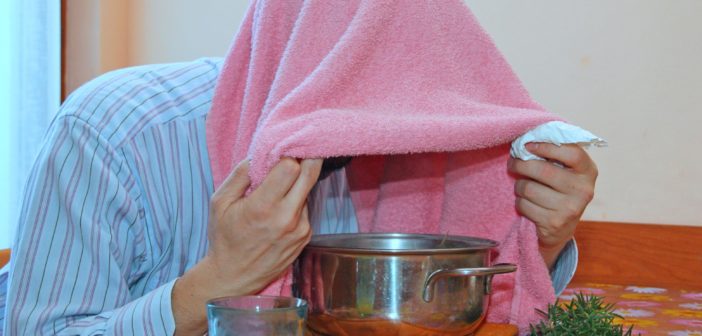To the Bolivian population:
As doctors with extensive experience in medical practice, we want to suggest the following initial treatment with the aim of trying to stop, the progression of the Coronavirus.
Currently, as we are all in quarantine, we can still catch a cold as usual. Nevertheless, if fever, body aches, and especially dry cough appear, we recommend the prompt application of the following treatment:
Pour some water in a saucepan, the smaller the better, pour until the water reaches about 1/5 cm high. Once the water boils, add 2 or 3 drops of IODINE. It can be bought at a pharmacy. By covering the top of your head with a towel, approach the pot taking care of not getting too close in order to avoid burning yourself and take slow deep breaths through your mouth, alternating with inspirations through your nose. Repeat the procedure several times in order to fill your respiratory tract with the iodine.
If you already feel the first symptoms, this can be practiced 2-3 times a day for about 2 minutes. You can also add about 2 leaves of Eucalyptus and/or chamomile flowers and continue another 2 minutes breathing deeply.
These home remedies have been very efficient in treating respiratory diseases for a long time.
IODINE is a formidable disinfectant and also an excellent mucolytic.
Eucalyptus has antibacterial properties and is also a perfume. It also has flavonoids (anti-oxidants) and tannins (anti-inflammatory).
Chamomile has anti-inflammatory properties.
At IPPA we used large vaporizing equipment that the late Prof. Dr. Gustavo Zubieta-Castillo (Sr) named “Thermo Fog”, which used a venturi tube to introduce the medicine in the vaporizer. There are also currently small commercial vaporizers that could be used in this way. But the use of the pot as described above, allows anyone with limited resources to receive this treatment.
The important thing is that this technique be applied when presenting any of the first symptoms of fever, malaise, body aches and especially cough.
We also recommend this to be done as soon as you come back home after going out in the quarantine, and after washing your hands as well as taking care of all the contaminated things you were carrying.
This technique could allow us in many cases, (although not in all) to slow down the progress of this terrible disease when it is still in the throat, trachea, bronchi and thus alleviate the overload of hospitals, which can be exceeded, as it is happening in many countries. The Bolivian Government has acted quickly, decreeing quarantine, which has allowed the level of infections to be non-explosive and Google has ranked us top in the quarantine application.
Be aware that some people can be allergic to iodine and should avoid it, but luckily there are not too many. It is important to note that for those with doubts, SENSITIVITY TO IODINE should first be tested with a drop of iodine placed on the mucosae or the skin on the interior of the mouth (pull out upper lip). If no reactions appear after 30 mins, the procedure is safe to carry out.
We make this medical recommendation in order to help the Bolivian population. A Bolivian woman in Spain reported on WhatsApp that this treatment helped her a lot to cope with her Coronavirus disease. Of course she is a young person, but she reported that it helped her breathe at the stage when there was already serious lung compromise. She was examined in a hospital but was sent to her home, where she achieved her full recovery. She did not use Iodine.
There is no scientific proof of the effectiveness of this procedure, however, centuries of experience treating colds, have taught us that it may have a favorable effect. Furthermore, since Coronavirus has a predilection for the alveolar cells, this seems a rational targeting strategy.
There are also other interesting factors that have been published on April 5, 2020 in the digital Bolivian newspaper La Razón. This article is about the wonderful protective effect of Ultra-Violet radiation in high-altitude cities in relation to the Coronavirus.
Prof. Dr. Gustavo Zubieta-Calleja
Bolivia
Dr. Natalia Zubieta-DeUrioste
Bolivia
Dr. Jorge Sfeir Byron
USA
